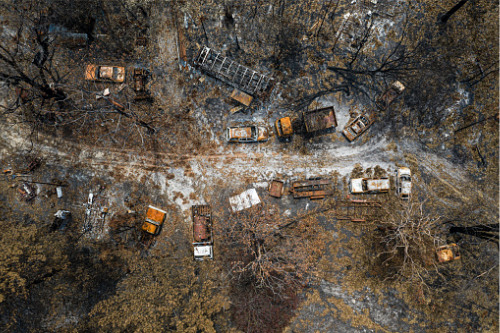

As Australia continues to face more severe and frequent natural disasters, the Federal Government has announced it will establish a new national agency to help communities respond to large-scale natural disasters and propose new initiatives to manage the impact of future events.
The National Recovery and Resilience Agency (NRRA), the new agency to be led by Coordinator-General Shane Stone, will support local communities during the relief and recovery phases following major natural disasters. It will also provide advice to the government on policies and programs to mitigate the impact of future major disaster events and climate change.
Prime Minister Scott Morrison said the government will invest $600 million in a new program of disaster preparation and mitigation, managed by the NRRA.
“The new agency will help communities rebuild and recover from natural disasters, helping many Australians in their greatest time of need, while strengthening our defences against future major disasters,” Prime Minister Morrison said.
“Immediate funding will support resilience projects across the community and for individuals’ homes, such as bushfire and cyclone proofing houses, building levees, and improving the resilience of telecommunications and essential supplies.
“In the past two years, Australians have faced floods, bushfires, cyclones, drought, and now the COVID-19 pandemic, and I’m determined to keep Australians safe and support the recovery of communities and regions right across Australia.”
The agency will bring together the former National Drought and North Queensland Flood Response and Recovery Agency and the National Bushfire Recovery Agency, including the $2 billion National Bushfire Recovery Fund. It will also be responsible for supporting the long-term recovery of communities rebuilding after the recent storms and floods in New South Wales and Queensland and cyclones in West Australia.
Minister for Agriculture, Drought, and Emergency Management David Littleproud said Emergency Management Australia will also receive support to upgrade their National Situation Room to include a real-time “common operating picture” for all natural disasters.
“We will also provide $4.5 million to support disaster recovery scenario training to help regional communities prepare for high-risk hazards,” Minister Littleproud added.
“This funding will provide accredited training for people working in disaster recovery and two pilot Resilience Hubs to coordinate regional training and capability development across all levels of government when responding to a natural disaster.”
The insurance industry has welcomed the announcement, with the Insurance Council of Australia (ICA) stating that the new agency would bring a national focus to building infrastructure, homes, and communities that can better withstand bushfires, storms, floods, and cyclones in the country.
ICA chief executive officer Andrew Hall said: “Insurers have been calling for some time for this scale of investment, and it’s pleasing to see the Morrison Government has heard these calls with this action. We look forward to seeing the details of these projects in the Federal Budget next week.
“Stronger and more resilient communities, businesses, and households mean less risk, less disruption to lives, and faster recovery after a major natural disaster. Insurers stand ready to assist this new agency with all the support and data needed to maximise the Commonwealth Government’s investment.”
IAG managing director and CEO Nick Hawkins said these investments will help protect people, businesses, and communities from the impacts of natural disasters.
“IAG has been very clear on the importance and benefits of greater investment in disaster mitigation, and this is another positive step in ensuring the nation has a coordinated approach to disaster management and targeted investment in mitigation projects for vulnerable communities,” Hawkins said. “This will help create safer communities and reduce the financial and social impact of future natural disasters, which we know will be more severe and frequent in a changing climate.”
Steve Johnston, Suncorp Group CEO, noted that the insurer’s research released this year underscored the vulnerability of many communities in Australia. Its One House initiative also showed how homes should be designed and built to withstand climate impacts better.
“More funding for natural disaster mitigation projects is vital and must focus on areas where there is a high risk of extreme weather and low levels of financial and physical resilience,” Johnston said. “More and better data through a world-class climate service is important, but we need to act now on resilience and mitigation measures.
“Insurers can play an important role in helping the new agency assess the impacts of extreme weather, including asset and community-level vulnerability. Importantly, all levels of government, industry experts, businesses, community groups, and individuals have a role to play. Collaboration is critical to helping make Australia more resilient to natural disasters.”
